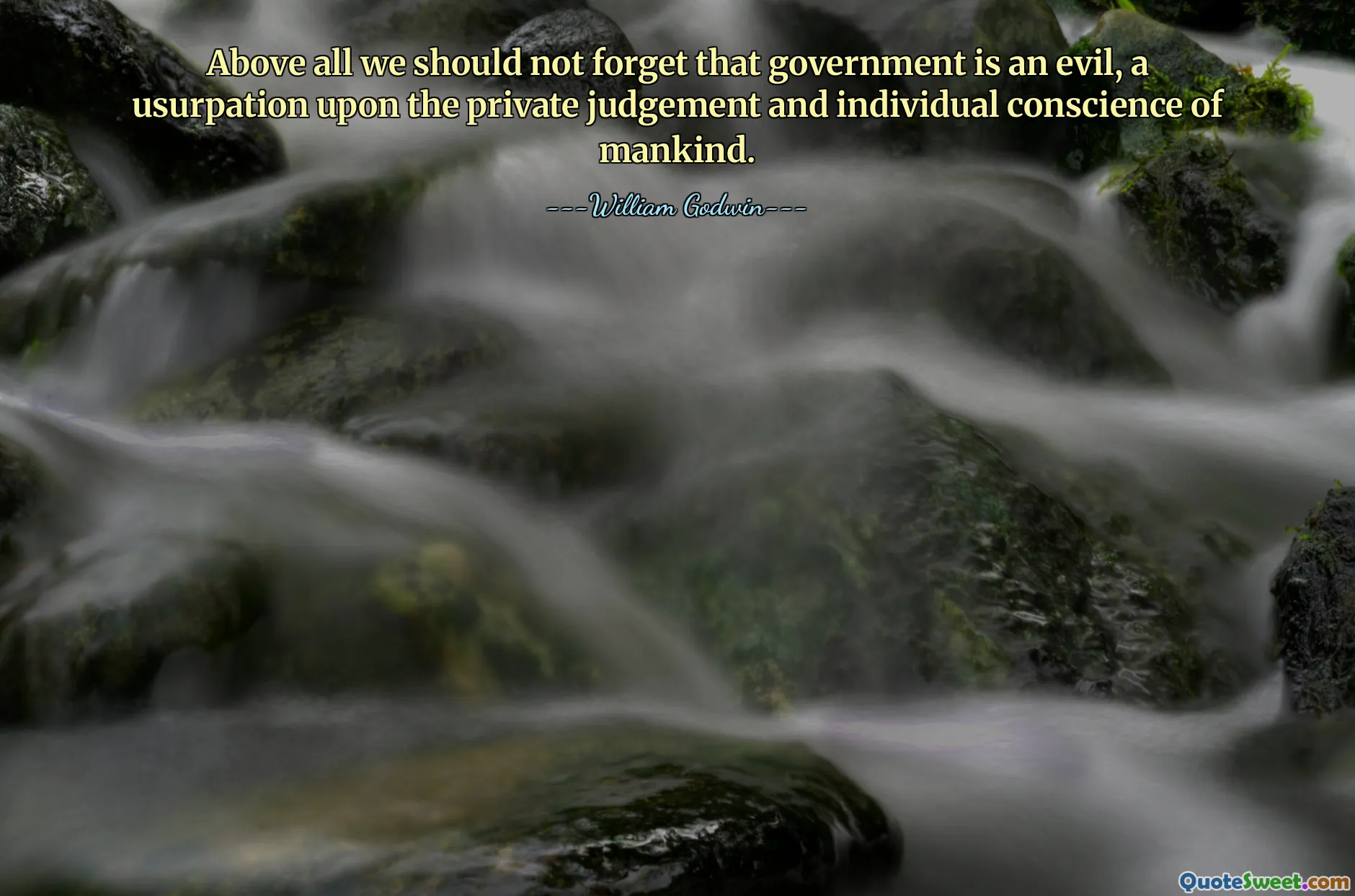
Above all we should not forget that government is an evil, a usurpation upon the private judgement and individual conscience of mankind.
This quote by William Godwin sharply critiques the nature of government as an institution that inherently infringes upon individual freedom and personal moral judgment. It suggests that government functions not as a benevolent force but as an oppressor, usurping the sovereignty of personal conscience. Such a perspective invites us to reconsider the role of authority and the extent to which external institutions should influence personal decision-making. Throughout history, many have argued that government, while necessary for order and security, often overreaches, leading to tyranny, suppression of individual liberties, and the diminishment of personal autonomy. This idea resonates with libertarian and anarchist philosophies, which emphasize the importance of individual sovereignty and minimal state interference. It prompts us to think critically about the balance between societal order and personal freedom, and whether any form of centralized authority can truly serve the interests of individuals without becoming oppressive. The assertion that government is an evil underscores a profound skepticism of authority, questioning whether the benefits of organized society outweigh the intrinsic harm caused by autonomy infringement. While in practice, organized governments are often necessary to address collective needs, this quote challenges us to advocate for governance that respects and preserves personal judgment, ensuring it remains subordinate to individual conscience. Reflecting on such a stance encourages ongoing debate about the limits of authority, the importance of personal liberty, and the need to safeguard human rights from potential overreach of government power.







